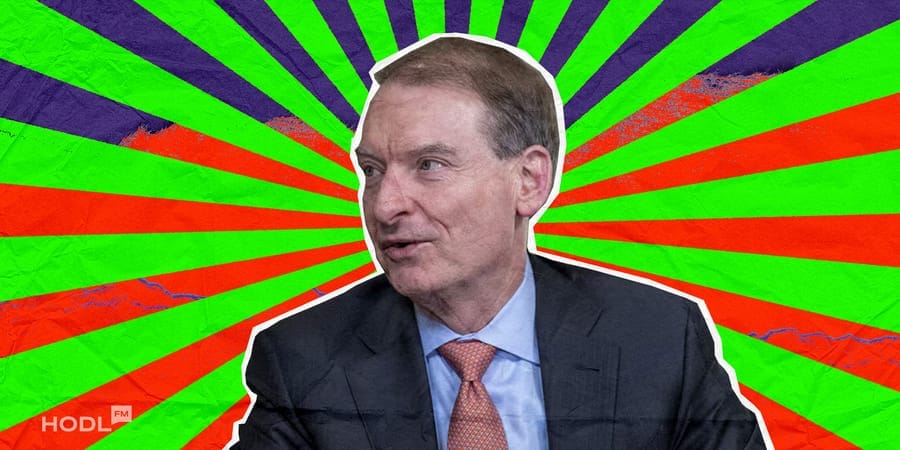During remarks delivered at the Federal Reserve Bank of Philadelphia, U.S. Securities and Exchange Commission Chair Atkins detailed the next stage of the agency’s Project Crypto initiative. The address described how the SEC aims to clarify the legal treatment of digital assets under federal securities laws and support congressional efforts to establish a legislative framework for crypto markets.
A push for clear definitions
Atkins said the Commission plans to consider establishing a “token taxonomy” rooted in the long‑standing Howey investment‑contract analysis.
“In the coming months, I anticipate that the Commission will consider establishing a token taxonomy that is anchored in the longstanding Howey investment contract securities analysis, recognizing that there are limiting principles to our laws and regulations,” he stated, as reported by SEC.gov newsroom.
The chair described the initiative as part of a broader effort to match the “energy of American innovators with a regulatory framework worthy of them.” He said much of the framework builds on work by Commissioner Hester Peirce, who leads the SEC’s Crypto Task Force and has long argued for clearer, economically grounded rules in the crypto industry. Atkins noted, “Commissioner Peirce has laid out a framework for coherent, transparent treatment of crypto assets under the federal securities laws, grounded in economic reality rather than in slogans or fear.”
Categories under the proposed token taxonomy
Central to Project Crypto is the differentiation among several categories of digital assets. Within his remarks, Atkins outlined four main groups that will guide the SEC’s review and communication to market participants.
“The SEC chair outlined four categories: digital commodities or network tokens, digital collectibles, digital tools and tokenized securities,” according to the description provided during the address.
Atkins explained that digital commodities or network tokens, digital collectibles, and digital tools generally would not be considered securities.
“These crypto assets are intrinsically linked to and derive their value from a programmatic operation of a crypto system that is ‘functional’ and ‘decentralized,’ rather than from the expectation of profits arising from the essential managerial efforts of others,” he said.
Buyers of such assets, he added, are typically not expecting profits that depend on others’ managerial work.
However, tokenized securities would remain subject to securities law.
“These crypto assets represent the ownership of a financial instrument enumerated in the definition of ‘security’ that is maintained on a crypto network,” he noted.
Howey and the end of investment contracts
Atkins also addressed how the Howey test applies to digital assets and emphasized that investment contracts can eventually conclude. He stated that not every crypto token sold under an investment contract should permanently remain classified as a security.
“Once the investment contract can be understood to have run its course, the token may continue to trade, but those trades are no longer ‘securities transactions’ simply by virtue of the token’s origin story,” he said.
That distinction, he explained, recognizes that networks evolve and that oversight should align with economic reality.
“Investment contracts can be performed and they can expire. They do not last forever simply because the object of an investment contract continues to trade on a blockchain,” the chair said.
Coordination with Congress and other regulators
Atkins affirmed that the SEC’s work on Project Crypto aligns closely with legislative initiatives underway in Congress to codify a comprehensive crypto‑market structure.
“What I envision aligns with legislation currently being considered by Congress and aims to complement, not replace, Congress’s critical work,” he said.
He reiterated that the SEC would continue collaborating with the Commodity Futures Trading Commission (CFTC) and banking regulators to harmonize oversight of non‑security crypto assets.
He also acknowledged Acting Chair Pham and expressed confidence in the confirmation process of CFTC Chair‑nominee Mike Selig. He added that statutory clarity from Congress would help “future‑proof against rogue regulators” by setting clear boundaries in law.
Balancing innovation with investor protection
Atkins underscored that the SEC’s approach will continue to uphold investor‑protection principles and anti‑fraud enforcement. The initiative, he said, aims to provide transparency and consistency rather than loosen compliance standards. “Fraud is fraud,” he reminded the audience, emphasizing that anti‑fraud provisions will still apply to token sales and representations made by issuers.
The chair explained that the forthcoming proposals should give developers more certainty while maintaining the safeguards at the core of U.S. financial regulation. By clarifying when tokens cease to be securities and when projects can operate independently, the SEC hopes to reduce the uncertainty developers face when building blockchain applications within the U.S. market.
Emphasizing clarity and rule‑of‑law principles
Atkins concluded his remarks by returning to the broader motivation for the framework. He said the project seeks to restore predictability and fairness to digital‑asset oversight while keeping innovation within the reach of domestic law.
“In a free society, the rules that govern economic life should be knowable, reasoned, and appropriately constrained,” he said.
According to Atkins, the SEC’s goal is to create a regulatory environment where entrepreneurs can develop technologies and investors can participate in digital‑asset markets under rules that are both firm and clear.

Disclaimer: All materials on this site are for informational purposes only. None of the material should be interpreted as investment advice. Please note that despite the nature of much of the material created and hosted on this website, HODL FM is not a financial reference resource, and the opinions of authors and other contributors are their own and should not be taken as financial advice. If you require advice. HODL FM strongly recommends contacting a qualified industry professional.





